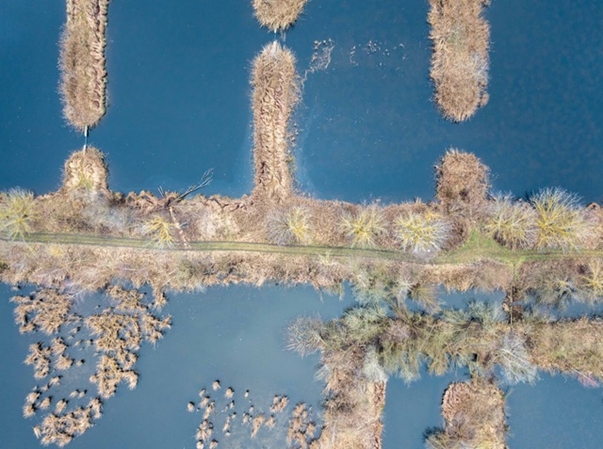39th Public Lecture Series "Water Talk Lusatia - How to Continue with Water in the Region?"
Brandenburg is characterized by large water areas, high evaporation rates, low annual precipitation totals and low groundwater recharge rates. Berlin's water supply depends on surface and underground inflows from Brandenburg, especially the water flow of the rivers Spree and Dahme but also Havel. Some rivers, such as the Spree, show a decrease of 60-70% in discharge over the last 40 years, numerous lakes and groundwater levels show a decrease in levels in the meter range over the last 10 years.
Due to a climatically induced increase in evaporation and seasonal redistribution of precipitation as well as a decrease in sump water discharge in Lusatia, accompanied by an increase in water demand from agriculture and industry and the goal of preserving water-dependent ecosystems, a water quantity conflict has arisen in some regions of Brandenburg in recent years.
With the help of process-based mathematical models, which represent the hydrological-hydrogeological system behavior, and scenario analyses, which include socio-economic change as well as climate change, the adaptation in Berlin-Brandenburg to global change can be improved. It is becoming apparent that established water management measures, such as dam management, will no longer be sufficient to compensate for the water deficit in the future. The implementation of new innovative water technologies, such as infiltration of wastewater or heavy precipitation into the aquifer as well as water transfers from areas with water surpluses to areas with water shortages, is therefore of utmost relevance. The provision of drinking water from desalinated deep groundwater or seawater in combination with water transfers is also conceivable.
An integrated water resources management (IWRM), which i) balances the natural water availability and the demand of different users (human, ecology, industry), ii) weighs them against each other and iii) tests the efficiency of different water management measures, can provide a concept tailored to the Brandenburg-Berlin region. The use of such model techniques in combination with IWRM concepts can ensure that the structural change in Brandenburg as a consequence of the lignite phase-out is sustainable.
The lecture presents the overall situation of the resource groundwater in SE Brandenburg as well as some conceivable solution concepts and gives an insight into the research project SpreeWasser:N https://www.spreewasser-n.de/, which was newly started on 1.4.2022 and is funded by the BMBF with 3 million € and consists of 10 research partners and more than 20 stakeholders and is coordinated by the FG Hydrogeology of the TU Berlin.
Link for livestream:
https://b-tu.webex.com/b-tu/j.php?MTID=mcf399686862cae88d40094c0dcbdf86b
We recommend the option "Join via browser", because then no further software needs to be installed on your system.
Date comment:
Veranstalter: BTU Cottbus-Senftenberg und Wasser-Cluster-Lausitz e.V.
Ort: Online Livestream
Referent: Prof. Dr. Irina Engelhardt, TU Berlin
Online event
Wir empfehlen die Option "Per Browser beitreten", weil dann keine weitere Software auf ihrem System installiert zu werden braucht.
Zutritt zum Event

